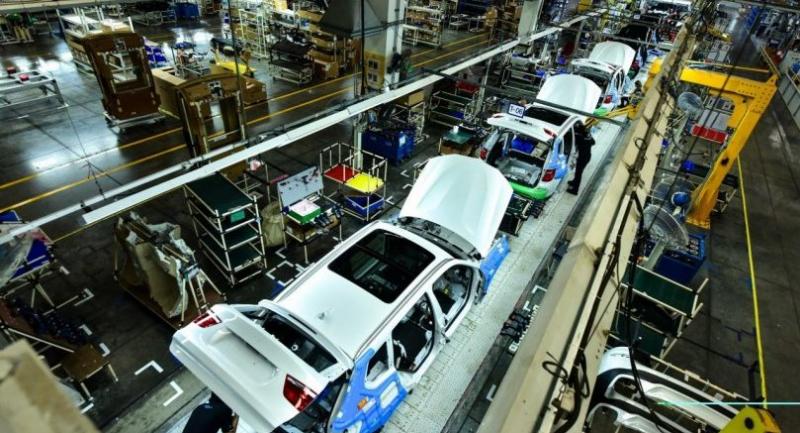Auto rebounds with 20% sales jump

Eco cars, pickups lead exports; electrification policy to the fore
After a slump in auto sales over the past several years, Thailand’s auto industry is once again expanding with more than 1 million vehicles sold domestically in 2018.
The 20-percent jump in auto sales has been attributed to political stability and a steady flow of new models accompanied by attractive sales campaigns all year round.
All segments in the market enjoyed strong growth, whether passenger cars or commercial vehicles (pickup trucks included). Even the luxury car market blossomed, with market leaders like Mercedes-Benz and BMW each selling over 12,000 vehicles during the past year.
Thailand remains an important production and export hub for automobiles, each year churning out over 2 million passenger cars, 1-tonne pickup trucks as well as other types of vehicles from various assembly plants located around the country.
For export, eco cars and pickups are the major “bread-and-butter” models from Thailand, along with a large number of motorcycles and parts. More than a million automobiles are exported yearly from Thailand to over 130 countries. Thailand boasts an auto production capacity of 3 million units, which is expected to grow to 3.5 million within 2020.
While the nation may not offer the lowest labour cost structure in the region, it has a large number of highly trained skilled workers and a strong network of over 2,000 parts suppliers.
Thailand is looking into producing high-technology products such as BEVs (Battery Electric Vehicles) in the near future, but the plan requires time to get various infrastructure up and running.
The Thai Ministry of Industry is moving forward with its electrification policy (PHEV or BEV) for pickup trucks and eco cars. The ministry recently announced investment promotions for this project, and several automakers have decided to enter.
The second step involves production of EV components, with plans to upgrade the eco car (75 per cent of the 100,000-unit annual production per brand is exported) to eco-EVs with electric motors. Production of electric buses and three-wheelers are also planned.
Brands that filed for hybrid production privileges include BMW, Honda, Nissan, Mercedes-Benz and Toyota.
BMW and Mercedes-Benz are already offering PHEVs (Plugin Hybrid Electric Vehicles) in their Thai product lineup, and are busy building battery production facilities and charging infrastructure in Thailand. In September last year Mercedes-Benz launched its first EV in a global event in Stockholm, and could decide to offer it here in the future. Audi is also interested in joining the EV race, and has hinted that it wants to offer EV products in Thailand.
Nissan, meanwhile, is the first major Japanese auto company to jump into the EV craze. It recently introduced the LEAF EV, which is priced at Bt1.99 million and targeted at upmarket buyers. The LEAF is capable of covering 400 kilometres on a single charge.
For the general public though, internal combustion engines are still the affordable answer. Consumers in 2019 will be looking for higher efficiency and performance, larger interiors, along with a long list of add-on features.
Meanwhile, infotainment has become an important part of the modern automobile. Apart from playing music and giving online access, the portals are now connected to the navigation system and can serve as a personal secretary to the driver, communicating via voice recognition systems.
